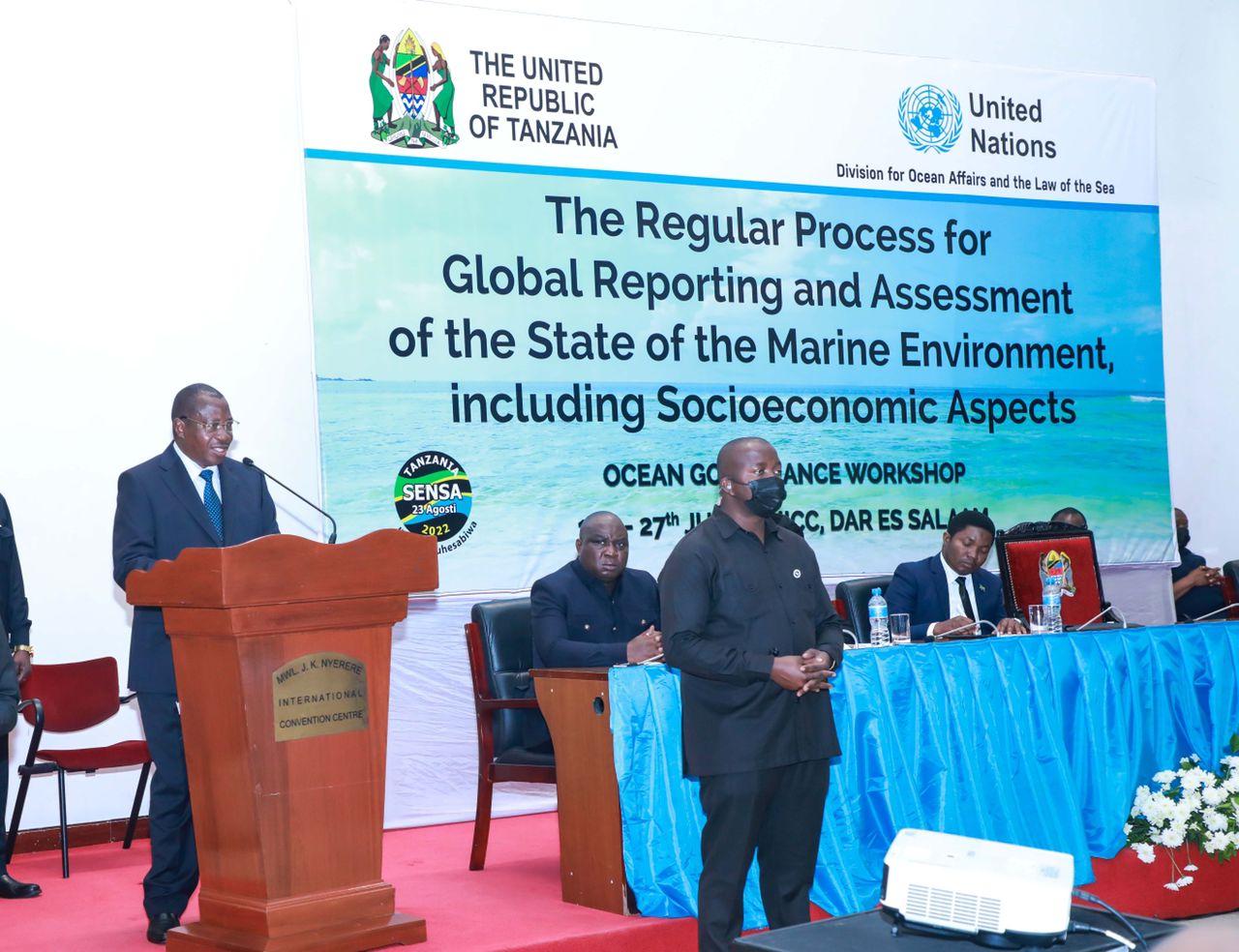Africa-Press – Tanzania. THE Vice-President, Dr Philip Mpango, has cited the total ban on single-use plastic carrier bags and allocation of 6.5 per cent by the government of Tanzania on its part of the Indian Ocean as marine protected areas, as among efforts aimed at conserving and protecting marine environment.
Dr Mpango outlined the measures at the Julius Nyerere International Convention Centre (JNICC) in Dar es Salaam yesterday during the official opening of a workshop on assessment, conservation and monitoring of ocean environment, which was organised by the United Nations (UN).
The VP as well told participants at the workshop that the government of Tanzania has managed to control illegal fishing by using dynamites by almost 99 per cent.
“We have also strengthened surveillance and monitoring of deep-sea fishing activities to protect the quality of marine environment and livelihoods to mention but a few,” he pointed out.
“I share a special affinity on environment because I believe issues of the environment and particularly the ocean connect us all.
“If we don’t work together and commit ourselves to sustainable use of marine resources, we all stand to lose,” the VP told delegates at the workshop.
As such, Dr Mpango said the government of Tanzania has attempted to put forth appropriate measures aimed at conserving and protecting marine resources and environment.
“It is about time we find appropriate way to regulate and responsibly manage our activities in the ocean,” he noted.
Adding; “We have the responsibility to be pragmatic in our discussions on how best we can balance economic, social and environment dimensions when we harness ocean resources.”
Dr Mpango emphasized that the well-being of the sea and the wealth of the people must go hand in hand since health oceans, coastlines and marine ecosystems are essential for sustainable and resilient economy.
The VP also stressed on the need to reduce degradation of the ocean from the land, noting further that there is a need for sustainable guidelines for blue economy.
Tanzania’s Five-Year Development Plan 2021/2022-2025/2026 puts emphasis on blue economy by encouraging sustainable use of water resources through productive activities that rely on water-based resources, include fishing and offshore prospecting and extraction of oil and natural gas.
The other productive activities outlined by the plan in blue economy include tourism, fish farming, aquaculture, shipping and maritime transport, seabed extractive in addition to marine biotechnology, bio prospecting, and offshore renewable energy.
Therefore, in implementing the plan, the government will put in place an enabling business and investment environment in order to attract local and foreign investors so as to increase the contribution of the sector in the national economy.
Speaking earlier at the workshop, UN Senior Legal Officer Division for Ocean Affairs and the Law of the Sea, Ms Alice Hicuburundi said knowledge is key in ensuring better conservation and sustainable use of the oceans.
“Ocean science and technology combined with traditional knowledge must be at the centre of our ocean governance framework.
“We therefore need effective, responsive and inclusive science policy into place at all levels of governance,” she asserted.
For his part, the Minister of State in Vice-President Office (Union Affairs and Environment), Dr Selemani Jafo, said the workshop aims at assessing marine environment including economic activities and raising public awareness on proper use of marine resources.
Dr Jafo explained that the assessment will attract scientists to improve policies for proper utilisation of marine resources to ensure that the blue economy is productive and sustainable.
At the same occasion, the Revolutionary Government of Zanzibar’s Principal Secretary for the Ministry of Blue Economy and Fisheries, Dr Aboud Jumbe, said there is a need for countries to work together at national, regional and global level to carry out assessment of the oceans.
Dr Jumbe also called for more engagement through the blue economy to sensitize experts on the needs of communities which rely on marine resources for survival.
For More News And Analysis About Tanzania Follow Africa-Press







